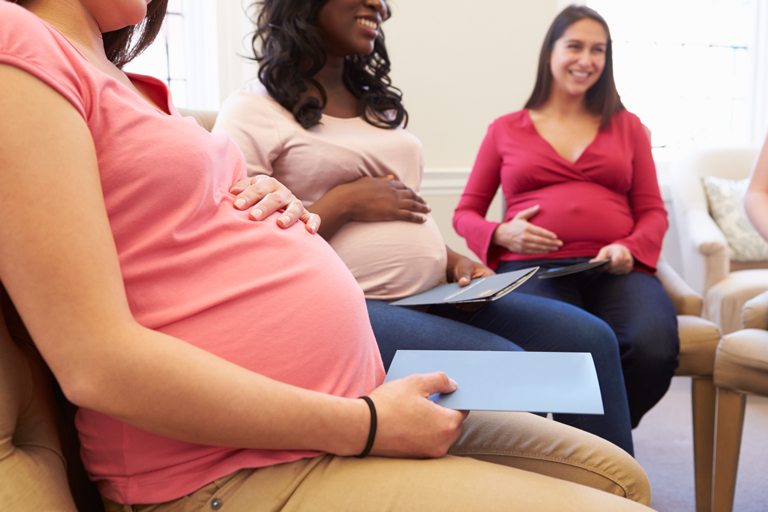Findings from the #AskTheWomen Project found over 250 support mechanisms needed for pregnant women and new mothers. Initiated by the Grassroots Maternal & Child Health Initiative, the project interviewed a geographically, racially and economically diverse group of Hoosier women.
The initial results of the project found significant policy barriers in women’s workplaces, healthcare settings, housing, schools and other community spaces.
“Many individuals cannot be at the statehouse to discuss their vision of what a supportive environment for pregnancy and parenthood looks like, but their voices and desires deserve to be heard,” said Erin Macey, senior researcher and director of advocacy for the Grassroots MCH Initiative. “By releasing these findings, we hope to inform the conversations that will be had moving forward.”
Nearly half of participants experienced significant interruptions to their ability to work, which suggested to researchers a strong need for accommodations and income replacement during and after pregnancy.
“We were really shocked at the way pregnant women were treated in the workplace,” said Karla Bingham, leader and co-investigator for the Grassroots MCH Initiative. “We didn’t have as many women with housing issues, but the ones that did express concerns that were very serious. This project showed just how far we have to go to create supportive environments. It’s going to a significant investment to make sure each mom and baby has what they need to thrive.”
Housing was another key issue that surfaced for the researchers. Several women discussed experiencing homelessness, struggling with eviction and habitability concerns.
“I want people to know that all of this exists,” said Tia Washum, leader and co-investigator for the Grassroots MCH Initiative. “Here’s reality staring us in the face. This is currently happening in people’s lives. Here, in one of the wealthiest countries on earth. How can we unite, as women and as people who have women in their lives that they love to create more support?”
The cost of health care surfaced in multiple interviews, with some participants reporting paying over $9000 for care associated with pregnancy and birth. Interruptions to school and training, the need for services related to mental health, substance use, and domestic violence, and the high costs of infant childcare, diapers, and supplies also emerged as important issues.
“We will never sustainably improve our state’s standing on maternal and child health until women from across Indiana and from different backgrounds are brought to the decision-making tables, because they alone possess the knowledge and wisdom about the root causes and the best ways to address them,” said Jack Turman, director of the Grassroots MCH Initiative. “The #AskTheWomen Project is part of our larger grassroots-driven effort to amplify the voices of women across our state.”


